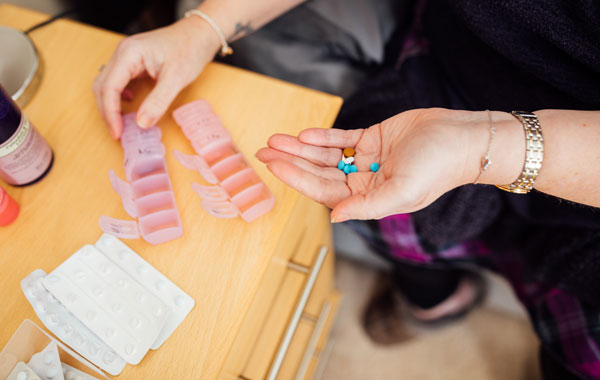Minding the Balance: Boosting Immunity While Taking Methotrexate
Methotrexate, a powerful medication used to treat various conditions like rheumatoid arthritis and psoriasis, works by suppressing the immune system. While this suppression is crucial for managing these inflammatory conditions, it can also leave you more susceptible to infections. This comprehensive guide explores strategies to support your immune system while taking methotrexate, offering tips to minimize infection risks and promote overall health.
Understanding the Balancing Act: Methotrexate and Immunity
Methotrexate primarily targets rapidly dividing cells, including those involved in the immune response. This suppression helps control inflammation but can also make it harder for your body to fight off infections.
Important Note: While methotrexate can increase your susceptibility to infections, it’s crucial to continue taking it as prescribed by your doctor to manage your underlying condition. Stopping methotrexate without consulting your doctor can worsen your original condition.
Supportive Strategies: Building Resilience
Here are some key strategies to strengthen your immune system while taking methotrexate:
-
Prioritize a Healthy Diet: A balanced diet rich in fruits, vegetables, and whole grains provides essential vitamins, minerals, and antioxidants that support immune function. Aim for a diet rich in colors to ensure a variety of beneficial nutrients.
-
Maintain a Healthy Weight: Obesity can impair immune function. If you’re overweight or obese, work with your doctor to develop a safe and effective weight loss plan.
-
Get Enough Sleep: Adequate sleep (7-8 hours per night for adults) allows your body to repair and recharge, including strengthening your immune system. Prioritize good sleep hygiene practices to ensure quality sleep.
-
Manage Stress: Chronic stress can weaken your immune system. Practice relaxation techniques like yoga, meditation, or deep breathing exercises to manage stress effectively.
-
Regular Exercise: Regular physical activity, even moderate-intensity exercise for 30 minutes most days of the week, can boost your immune system. Aim for activities you enjoy and consult your doctor before starting any new exercise program.
-
Wash Your Hands Frequently: Proper handwashing with soap and water for at least 20 seconds is one of the most effective ways to prevent the spread of germs and reduce your risk of infection.
-
Avoid Smoking: Smoking cigarettes weakens your immune system and increases your risk of various infections. If you smoke, quitting is one of the best things you can do for your overall health and immunity.
-
Minimize Alcohol Consumption: Excessive alcohol consumption can impair immune function. Limit alcohol intake or consider abstaining altogether.
-
Practice Safe Food Handling: Follow safe food handling practices to prevent foodborne illnesses. This includes washing and cooking food properly, storing food at safe temperatures, and avoiding cross-contamination.
-
Maintain Good Oral Hygiene: Good oral hygiene practices like brushing and flossing twice daily help prevent gum disease and potential infections that can affect your overall health.
-
Vaccinations: Stay up-to-date on all recommended vaccinations. Consult your doctor about any vaccinations you might need while taking methotrexate.
Important Note: While some studies suggest certain vitamins or supplements might support the immune system, there’s limited evidence specifically regarding their interaction with methotrexate. Discuss any supplements you’re considering with your doctor before taking them to avoid potential interactions.
Working with Your Doctor: Open Communication is Key
Open communication with your doctor is crucial while taking methotrexate. Here are some key points to discuss:
- Symptoms of Infection: Be aware of potential signs of infection like fever, chills, fatigue, redness, or swelling. Report any suspected infections to your doctor promptly for early diagnosis and treatment.
- Blood Tests: Regular blood tests are essential while taking methotrexate to monitor your white blood cell count, which is an indicator of immune function.
By following these strategies and maintaining open communication with your doctor, you can promote overall health and minimize the risk of infections while taking methotrexate to manage your underlying condition.
Frequently Asked Questions (FAQ)
Q: Can I take vitamins or supplements to boost my immune system while on methotrexate?
- A: There’s limited evidence regarding the interaction between methotrexate and specific vitamins or supplements. Discuss any supplements you’re considering with your doctor before taking them to avoid potential interactions.
Q: What should I do if I think I have an infection while taking methotrexate?
- A: If you experience any signs of infection like fever, chills, fatigue, redness, or swelling, contact your doctor promptly for evaluation and treatment. Don’t wait for symptoms to worsen before seeking medical attention.




